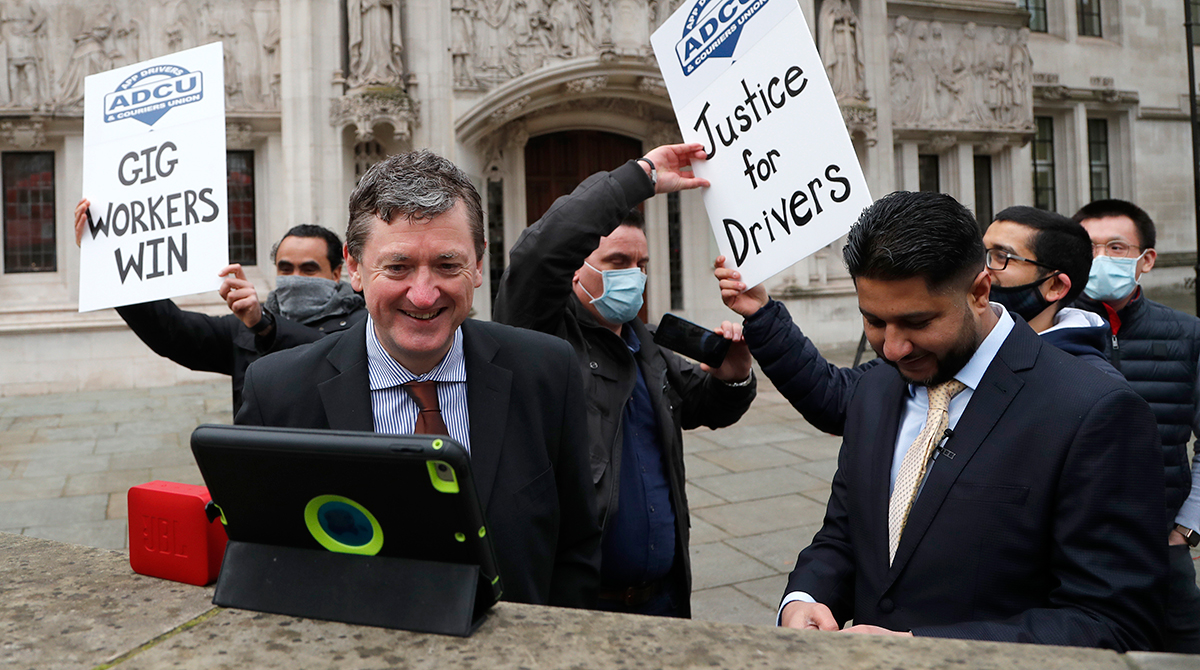8817
0
The British court's decision threatens Uber's business model
The British Supreme Court's decision threatens Uber's business model and will have wider implications for the so-called gig economy.

Yazar: Tom Roberts
Yayınlanma: 19 Şubat 2021 21:27
Güncellenme: 3 Mart 2026 01:09
The British court's decision threatens Uber's business model
The British Supreme Court ruled on Friday that Uber drivers should be classified as employed, not as self-employed. This decision threatens Uber's business model and will have wider implications for the so-called gig economy. Seven judges of the Supreme Court unanimously rejected Uber's appeal against the lower court's decision, which means the defeat of the alternative taxi operator in a long-standing legal battle over the status of its drivers. The judges agreed with a lower court ruling that two Uber drivers are employees under British law, meaning that they are entitled to benefits such as paid leave or a minimum wage. "The finding of the labor court that the drivers are employees was correct," said Supreme Court Judge Nicholas Hamblen as he read the summary of the judgment. "Drivers are subordinate to and dependent on Uber, so they have virtually no opportunity to improve their economic status or professional or business qualifications." Uber claimed that the two drivers were independent contractors. Uber has 65,000 active drivers in the United Kingdom. The decision of the British Supreme Court will have consequences for the whole so-called gig economy or custom economy, ie an economy that is based on short-term, one-off or occasional supplies of labor and services. "It makes it difficult for companies that employ people through digital platforms to claim to be self-employed," said Michael Powner, a lawyer for Charles Russell Speechlys.İLGİLİ HABERLER





European stocks soared and focus shifted to German retail sales after Powell's speech!

Forex Signal For TRY/USD: Inflation Slowdown in November.

Forex Signal For GBP/USD: Bullish Trend Still Not Breaking While Recovery Continues.

Forex Signal For EUR/USD: Starry US Data Points to Higher Fed Increases.

Forex Signal For BTC/USD: Downside Continues as Bitcoin Recovery Moves Less.
En Popüler Haberler
Yorum Yap
Yorumlar
Henüz yorum yapan yok! İlk yorumu siz yapın...